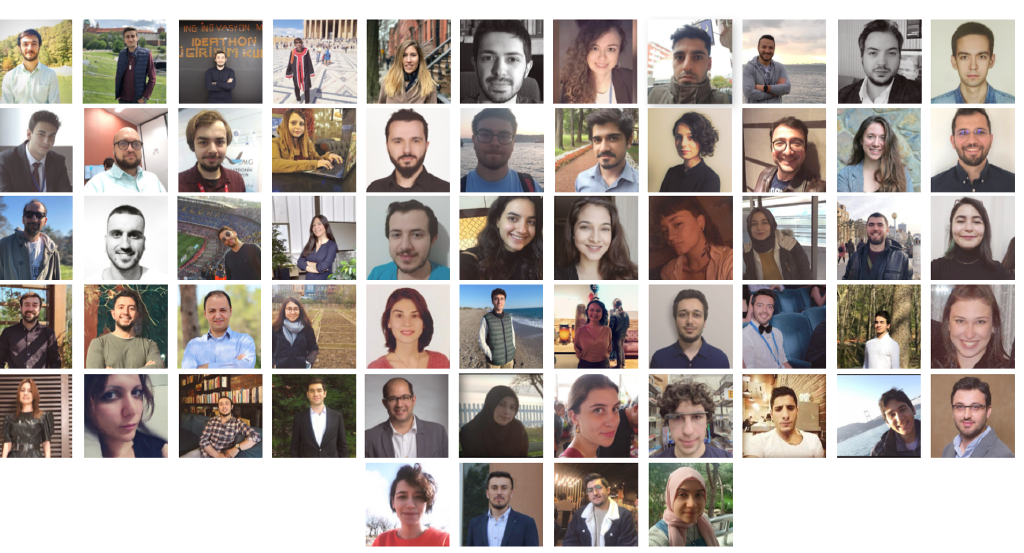 Volunteers of the CS50x Introduction to Computer Science © Kodluyoruz
Volunteers of the CS50x Introduction to Computer Science © Kodluyoruz
Many low- and middle-income countries can’t provide skills training for young entrepreneurs to adapt to the impact of the coronavirus (COVID-19). But youth themselves are playing an essential role in their communities by offering technological solutions to the problem. Here are two S4YE Youth Advisory Group (YAG) members who have risen to the challenge posed by the pandemic by providing free digital training to the new workforce.
Moving coding classes online
YAG member Gulcan Yayla is the co-founder & CEO of Kodluyoruz, which translates to “We Code” in English. The organization has been working to make Turkey a worldwide talent hub for technology while helping address the country’s youth unemployment and underemployment problems.
When Turkey started the lockdown to slow the spread of COVID-19, Kodluyoruz immediately transitioned their classroom bootcamps online. This year the organization plans to train over 2,000 people on web development, mobile development, data science, and machine learning.
Gulcan’s organization has also partnered with several local call center businesses to train employees with these digital skills. And, because the bootcamps are online, the organization has connected underprivileged students with sponsors to arrange funding so that they can obtain quality internet connections at home.
Kodluyoruz has also collaborated with Harvard University’s CS50 team to offer the CS50x Introduction to Computer Science course to all Turkish young people for free. The course, which teaches young people about computer science and programming, was translated from English to Turkish by 80 volunteers.
Since the course launched in April 2020, more than 30,000 people across Turkey have registered.
Supporting small businesses

Another YAG member promoting youth entrepreneurship is Dr. Anna Bethune. She is the director of impact and research at Diatom Impact, based in Lagos, Nigeria. Diatom conducts local research and provides funding to partner organizations that are working in poverty alleviation, health care, and other entrenched development challenges.
During the COVID-19 pandemic, Diatom has launched “One Community” (1C), a micro-business incubator and network that supports small and micro enterprises in Nigeria and across Sub-Saharan Africa. The 1C project supports 375 businesses, 338 of which are youth or women-owned enterprises. Simultaneously, Diatom facilitates online seminars called “Dealing with Disruption,” which highlight successful solutions taken by entrepreneurs, government agencies, and social organizations to adapt to this crisis.

COVID-19 has disrupted the African gig economy that relies on face-to-face service delivery. Diatom is tackling this challenge with its partner Bookings Africa. This online marketplace for gig workers in the creative economy currently operates in Nigeria, Kenya, and South Africa. With support and strategic advisory from Diatom, Bookings Africa has launched a Digital Work Initiative that allows gig workers to monetize their skillsets and passions online in ways that are COVID compliant. Their program will offer free online training and master classes — including expert tutorials and digital marketing available only through Bookings Africa.
“Many African entrepreneurs that require face-to-face service delivery are experiencing economic disruptions in their local business,” says Bethune. “We are honored to collaborate with our partners to develop digital access solutions for local entrepreneurs during these challenging times.”
Another major component of the project is to target rural youth and rural women who have untapped skills that they would like to monetize. The organization’s plan is to upgrade the technology to accommodate and push marketing for these businesses through SMS messaging.
This is the second blog in the S4YE Youth Advisory Group COVID-19 Blog Series. The next blog in the series will talk about how young people are investing in solutions to protect the health of local citizens.



Join the Conversation